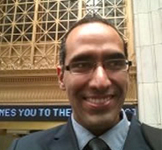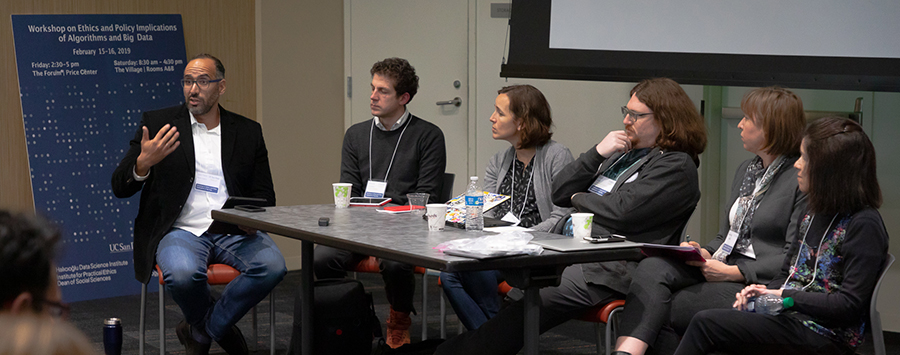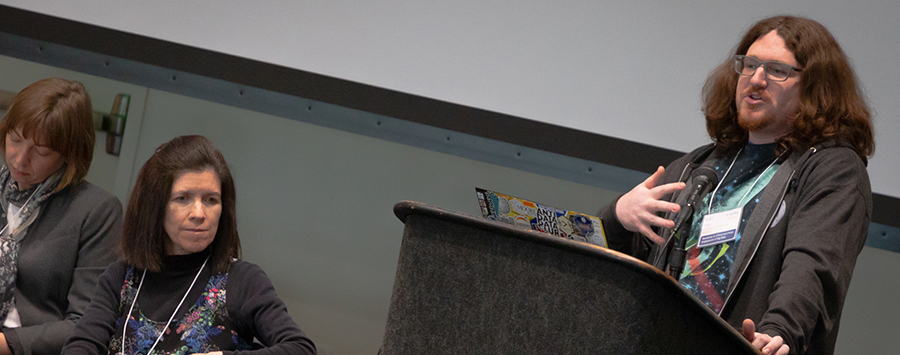Ethics and Social Implications of Data Science
Information on all members of society now exists in various databases, and the ability to analyze enormous amounts of data is reshaping how governments, businesses and other entities made decisions. However, ethical standards for data designed for a pre-computer age are of limited utility, and the use of “big data” raises a host of social and ethical questions.
In conjunction with the Halıcıoğlu Data Science Institute and School of Social Sciences, the Institute for Practical Ethics sponsored an inagural workshop in February 2019 addressing the rise of big data: the combination of the production and retrieval of large amounts of digital information with powerful algorithms on a hardware platform of ever-increasing capacity.
The workshop gathered social and computer scientists, activists and practitioners interested in the ethics and policy implications of this technological revolution.
These industry leaders surveyed the achievements, promises and technical challenges of big data, its effects on social inequalities and democracy, the cultural shift it is generating in the way we value knowledge, create art and conduct science, and the ways we may control it and influence its progress.
Working Group on Data Analytic Governance and Accountability
Governance and accountability are important because governments are adopting data analytic technologies to maintain social order and to enhance or replace existing instruments of regulation and social control, just as markets are relying more and more on data analytics to organize economic activity.
As a result, algorithms are deployed often without transparency or accountability. Most data analytic tools are “dual use,” allowing for socially beneficial and socially pernicious uses.
Important issues in this domain include: data privacy and security, algorithmic fairness and discrimination, the replacement of human discussion and deliberation with narrowly focused algorithmic decision making, the masking of human decision making with data analytic operations, the lack of transparency and interpretability of algorithmic processes, and the various unintended consequences of the deployment of new information technology for social ends.
To understand how these powerful tools work and to ensure that they are applied in ways that enhance rather than curtail human agency, social justice, democracy and economic development, we must articulate and investigate how data analytics govern and transform social life.
Working Group Members

Amanda Datnow
Department of Education Studies

Kelly Gates
Department of Communication

Stuart Geiger
Department of Computational Social Science

Caroline Jack
Department of Communication

Lilly Irani
Department of Communication

Daniel Navon
Department of Sociology

Juan Pablo Pardo-Guerra
Department of Sociology

Ramya Rajogopalan
Institute for Practical Ethics

Margaret Roberts
Department of Political Science

Akos Rona-Tas
Department of Sociology


